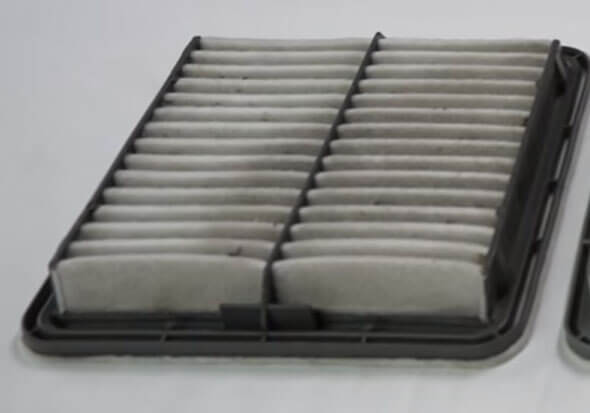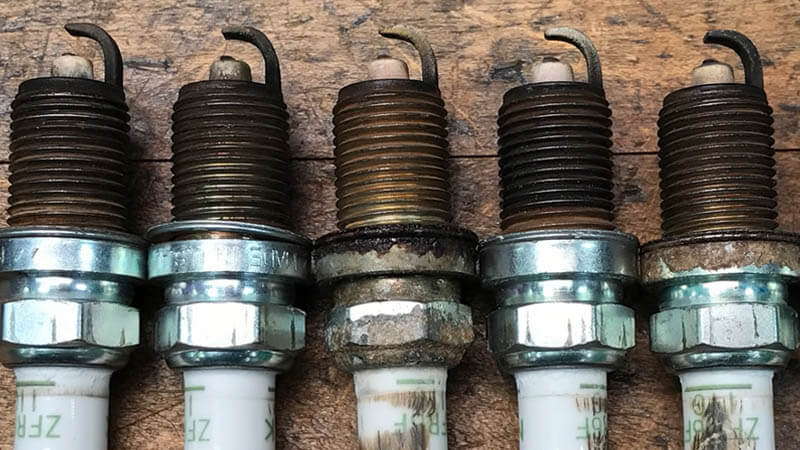Despite being one of the tiniest components of a car, a spark plug plays a crucial role in starting up your vehicle safely, and that too without any misfires. But due to improper caring and less education in this field, many of us end up with black deposits on our spark plugs!
So, what causes a spark plug to turn black? Indeed, jammed air filters, excess carbon growth, and extensive heating are the key reasons. Oil leakage from other components also turns your spark plug greasy. And eventually, it becomes black over the period!
Without getting a detailed overview of the causes, you’ll be unable to find their optimal solutions. And that’s what we’ll talk about right here. Stick with us!
4 Main Causes of a Spark Plug to Turn Black and the Best Ways to Fix Them
Facing difficulties during the engine start-up and oiler of a car is pretty common if the spark plug gets black. As a result, examining it from head to toe becomes a “must” for everyone.
Here, we are going to disclose some definite causes why a spark plug is prone to get blackish. And note that it isn’t just about switching to a different color. Yet, a black spark plug may create a huge misfire!
So, let’s get into the causes and efficient ways to solve them:
1. Extensive Amount of Carbon Growth
We’d consider it the first reason for a spark plug to be black. Incomplete oil combustion, fuel seeping, and aging are the 3 prime reasons for the extreme carbon build-up.
Alongside the blackish spark plug, too much shaking and issues with the drivability are known to be the key signs. And this will be a major obstacle in terms of acceleration and mileage.
So, experts recommend cleaning up the carbon using a putty knife, steel wool, and wire brush. Take the necessary support from a skilled mechanic if you can’t do it yourself.
2. Too Much Heating
According to a recent survey, the spark plug turns blackish after getting into contact with excessive heating. And that mostly happens in the four-cycle and two-cycle engines as they need to bear heavy loads from time to time.
In that situation, replacing the spark plug is probably the best solution to go with, especially if the heat significantly ruined it.
You better consult your nearest shop, as they’ll guide you through by observing your spark plug’s condition.
After all, it’s safe!
3. Dirty or Jammed Air Filter

A clogged or jammed air filter limits the overall supply of air to the engine, resulting in unburning oil to reform soot leftovers. And that’s what the spark plug of your car accumulates and eventually turns black!
Being dirty, you must clean up the air filter thoroughly following the user manual. In this case, vacuuming or manually washing the filter using water and vinegar isn’t a bad idea.
4. Excessive Fuel Mixture
While putting oil or fuel around the car’s engine, we mistakenly incorporate too much oil that doesn’t get the entry into the cylinder. That’s how the tips of the spark plug start blowing up, which results in becoming greasy and wet!
As for the solution to get rid of it, simply have patience while putting oil through the cylinder so that you can refill the fuel gently.
Best Ways to Prevent the Spark Plug from Getting Black
Now that you’re familiar with the causes behind a blackish spark plug, it’s time to learn how you can prevent it. Each of the below-mentioned techniques has been utilized by automotive enthusiasts –
- As a clogged air filter is one of the main culprits, you must pay attention to cleaning it up after a certain period of time.
- Proper adjustment of the carburetor should be another concern so that it doesn’t offer a negative impact on the spark plug.
- During the air-fuel mixture, make sure to maintain the proper ratio known to be “14:7:1 for a typical car engine.
- Oil shouldn’t seep all the way during the refill in order that it can’t turn the nearest spots greasy or oily.
Eliminating Black Deposits from the Spark Plugs: 3 Basic Steps
Even after preventing your spark plug from turning black, are you still noticing such a bummer? If so, there is nothing to do except to eliminate the black deposits by following the given steps:
Things Needed:
- Plastic glass
- Rust cleanser
- Dry cloth/a piece of cloth
- A piece of toothbrush/small brush
Step 1: Putting the Spark in Plastic Glass
Get your hands on a top-glass liquid cleanser to pour on the glass. By not keeping the insulator inside, only place the spark plugs right there. Keep them leveled for not more than 30 minutes.
Step 2: Begin Brushing
Once the waiting period is complete, pay attention to rubbing the spark plug to eliminate those black deposits. Here, you should avoid pressing too hard for a risk-free operation.
Step 3: Washing and Drying the Spark Plug
Let’s keep the spark plug under lukewarm water once you’ve brushed it up. Wipe it off thoroughly, and then take a piece of dry cloth to get it dry.
If possible, take assistance from a hair dryer to dry the spark plug in the safe and best way possible!
FAQ
For being a crucial part of every car, it’s pretty common to have more queries on the causes of a blacking spark plug, right? Check out these frequently asked questions to find your preferable answers –
In simple words, a blown-out gasket ends up with a leakage issue, which is why the spark plug tends to get in contact with the fuel and turn oily over the period. And that’s when the component turns black.
The combination of vinegar and water is efficient in dissolving dirt, black deposits, and so on.
Thanks to its super-effective acidic nature! The mixture softens the accumulated deposits from the spark plug. And thus, it becomes a snap to take off the residue using a brush.
In general, a worn-out piston ring is prone to slip oils, which causes leakage issues with the cylinder. Ultimately, your spark plug gets the chance to contact with greasy substances, accumulating the undesired black deposits.
Even after trying everything mentioned above, if you’re still failing to eliminate black deposits from the spark plug, then replacement is the only solution.
But fortunately, it won’t hurt your wallet as a set of spark plugs is available at multiple prices, ranging from $16-$100.
Final Words!
The spark plug might be a small type of part in your car. And that’s one of the key reasons why we often neglect the necessity of eliminating black deposits, which causes several issues to drop the overall performance.
Basically, the causes we’ve incorporated above are related to two significant aspects, including oil accumulations and carbon foul. No matter what, cleaning up the spark plug is the only solution to eliminate black deposits using vinegar, brush, and water!
As for drying the spark plug, we find it safe to use a hair dryer. Because it can smoothly reach the trickiest spot so that rust can’t build up later on.


